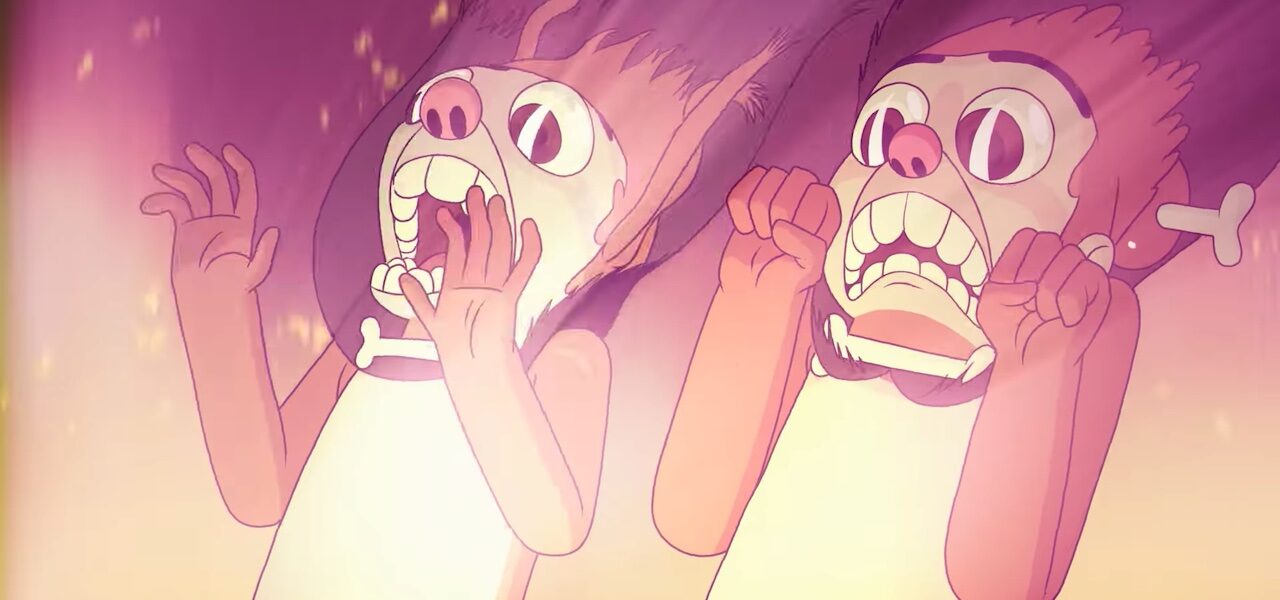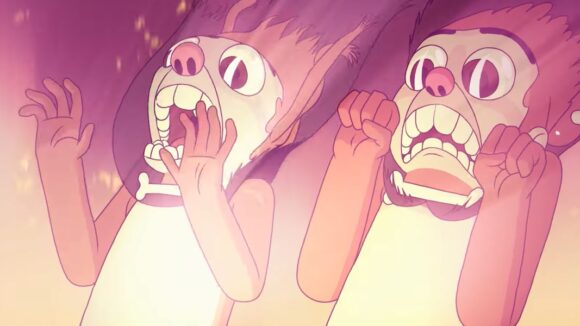

Balancing Indie & Industry: 5 Takeaways From Nick Cross’s GLAS Talk
Nick Cross grew up with aspirations to be a biologist, but was rerouted toward art school by the advice of a guidance counselor. It worked out well: over the decades, the Canadian artist has forged a successful career in animation, combining independent and industry projects with a rare versatility.
In the commercial world, Cross is best known for his work at Cartoon Network, where he was art director on the miniseries Over the Garden Wall (2014) — for which he won two Emmys — and the in-house shorts program. He also served on the story team and as a supervising producer on the recent Tig n’ Seek. He is now at Netflix, where he is co-showrunner on an adaptation of an existing property.
These projects have helped shape him as an artist, but they have also subsidized shorts he produces largely on his own. These films, which include The Pig Farmer (2010) and The Clockwork Elves (2020, image at top), have played at festivals and won plaudits around the world.
Cross spoke of his contrasting experiences in these two worlds during his appearance at the virtual edition of GLAS festival (which has been extended April 16). He also discussed his creative process and the idiosyncrasies of his past projects. What follows are five nuggets of insight and advice that struck us in his talk:
1. In the commercial world, you get pigeonholed.
“Oh, you’re a character designer, so you can’t do anything else,” says Cross, describing this mentality. The best way to break out of a pigeonhole is to show that you can do other stuff, “and the best way to do it is to make your own films. They don’t have to be epic films.”
2. Don’t expect to like your own films.
“I usually hate everything that I’ve made,” Cross admits. He adds that it’s crucial to release your work even if you’re not happy with it. Disappointment can also motivate: “Part of the reason I keep making films over and over is that I’m dissatisfied with the previous film I made, so I want to make a new one to fix all the problems I had with the last one.”
3. Cartoon Network was pretty hands-off …
… at least for Over the Garden Wall. The studio “didn’t care what we were doing,” Cross says. He was surprised by how rarely they needed to seek approval from people higher up. “It felt like we were making this little independent project.” He contrasts this with his experiences in the Canadian industry, “where everything is scrutinized.”
4. Storyboards dictate character design.
Cross generally begins a project by exploring ideas through loose sketches and thumbnails. He storyboards before designing the characters, as “the boards dictate what the characters need to be.” If you start with the designs, “you get tied down to this idea of this character — ‘Oh, he’s too tall’ — things get messy that way, and it prevents you from moving forward sometimes.”
5. Subtitles can distract from bad animation.
While watching anime as a young man, Cross found the subtitles were drawing his attention away from the visuals. Flipping this thought, he realized the subs could be used as a useful cover for “terrible” animation. This emboldened him to make his early short Tea for Two (1998), when he still lacked experience as an animator. The film mimics dialogue from the classic Swedish film The Seventh Seal, which is mock-translated with subs of Cross’s invention.

.png)